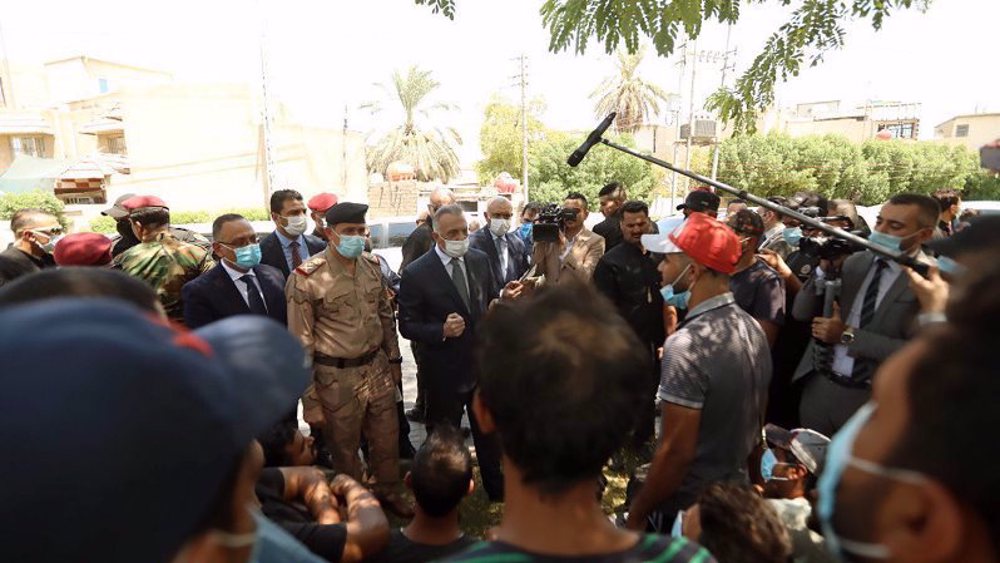Iraqi PM listens to protesters’ demands at sit-in site in Baghdad
Iraqi Prime Minister Mustafa Al-Kadhimi has for the first time met with anti-government protesters in central Baghdad, renewing his pledge to deliver on their rightful demands.
On Wednesday, Kadhimi visited a group of young demonstrators, including college graduates, during a sit-in in the center of Baghdad and listened to their demands and proposals, according to a statement by his office.
The Iraqi prime minister promised to “meet all their rightful demands,” saying that “the government faces cumulative problems, caused by years of mismanagement of the decision makers, and the absence of long-term plans,” the statement said.
Kadhimi described the protesters’ demands as “legitimate” and in line with the country’s constitution and his government’s agenda.
He said that measures taken by the government against corruption and mismanagement would have a positive impact on the overall performance of the country and the government apparatus.
Iraq has been the scene of protests over the past months, with young crowds demanding jobs, services, and urgent action against alleged rampant corruption.
Former Iraqi prime minister Adel Abdul Mahdi stepped down under the pressure of the rallies, which were sometimes marred by deadly violence
Kadhimi, who took office following a political consensus in May, has promised to fulfill key demands of anti-government demonstrators.
Furthermore, Kadhimi has promised dialog with protesters and has requested comprehensive lists of all those who have been killed and wounded throughout the months-long protests in a bid to put those accountable on trial and bring about compensation.
Last week, Kadhimi proposed that parliamentary elections be held next June, a year earlier than scheduled, a key demand of anti-government protesters.
The next legislative elections had originally been due for May 2022. After the date was drawn a year closer by the prime minister, it is now the parliament’s turn to officially vote on the new date.
However, it is not yet clear under what electoral law the early elections will be held.
Late last year, a new electoral law was passed, aiming at giving political independents a better chance of securing seats in parliament and weakening the hold of the ruling elites, but political differences prevail over the implementation of the legislation.
If the new law is implemented, it would change each of Iraq’s 18 provinces into a number of electoral districts, with one lawmaker elected per 100,000 people, meaning that it would practically bar parties from running on unified lists, which in the past has helped them win all the seats in a certain province.
VIDEO | Yemenis praise the military for its successful operations against Israel
VIDEO | Israel continues to bomb Gaza homes
VIDEO | An insider's view of the country: Meybod City in Yazd
‘All wars have rules. All of those rules have been broken’ by Israel
VIDEO | Report flags India’s violation of rights of Rohingya detainees
Turkey's foreign minister meets Syria's de facto leader in Damascus
VIDEO | US Syria plots
'Next to impossible' to rescue patients from Gaza's Kamal Adwan Hospital: Director












 This makes it easy to access the Press TV website
This makes it easy to access the Press TV website